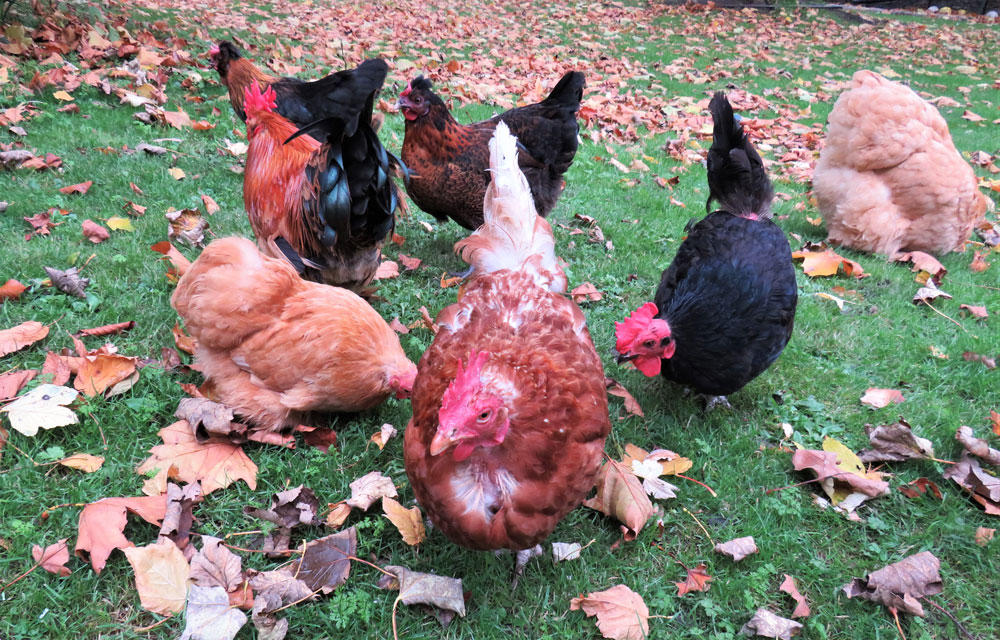Local pets: feathered friends
23rd December 2020
When the Burrows family moved to a house with a larger garden, Charlie (12) and William (9) wasted no time in assembling a flock of assorted birds, which provide the family and some of their lucky neighbours with delicious, free-range eggs. The boys tell Amander Meade why chickens make great pets

Beginning with a pair of bantams, Charlie and William fell in love with rearing their own hens and are now the proud owners of an assorted group of beautiful laying birds ranging from Honey Bantams to Peking Lavenders, Sussex Whites, Buff Orpingtons, Legbars and two rescued battery Rhode Island Reds. The birds respond to the boys’ vocal calls, feed from their hands and are named according to their characters, and there’s no mistaking the fondness of the relationship. The boys know each of their birds’ quirks and personalities, and are devoted to their well-being.
‘Every morning, whatever the weather, William and I release and feed the hens. They must have fresh water every day and they love their corn, but we have to make sure there’s just the right amount to avoid waste, as that would encourage vermin,’ explains Charlie. ‘The birds sleep in their secure hen house to keep them safe from foxes, but they range all day long in our garden. In the summer they love a sand bath, and some of them like to go up in the trees, so it’s important to make sure we count them all home again in the evenings. Our cockerel is called Blossom and he takes his duties very seriously – always bossing the girls around and looking after his flock.’
Many of the birds have been reared from eggs by the boys – notably four assorted birds that originated on the Chatsworth Estate. ‘We went for a day out to Chatsworth, and I was admiring their hens,’ recalls Charlie. The Farm Manager gave me half a dozen eggs to bring home, so I incubated them along with a pheasant egg I found in the woods. The pheasant egg was cold, so I didn’t hold out much hope, but he hatched along with four other chicks, and that was the start of our flock. The pheasant now lives just across the road, and we see him all the time.’
So dedicated are the boys that one of their hens travelled with the family for a Christmas visit to the Isle of Wight. ‘She had an injured leg, and we didn’t want to leave her, so we popped her in a basket, and she came with us, so we could nurse her back to health. She recovered really well, although she lost her foot, and we still have her – we called her Hoppy.’ None the worse for her ordeal, Hoppy – William reports – is now the head honcho of the flock. Perhaps her special treatment and wide-ranging travels gave her confidence…
Charlie recommends keeping hens as pets but warns of the responsibility involved and recommends a dedicated area to range in ideally. ‘For gardens it’s best to choose a breed that doesn’t scratch – Legbars are good for that. Legbars and Rhode Islands are great layers, and the rescued battery hens are so lovely to have too. Lots of people start with a clutch of eggs; my friend Harry hatched out six chicks from a box of eggs from Waitrose!’
The boys clearly love their birds dearly, and a happier, better-tended flock you’d struggle to find anywhere. And the best bit? The fresh eggs of course. ‘There’s enough for us, and we supply the ones we don’t use to some of our neighbours for baking. There’s something great about finding fresh eggs in the morning and having them for breakfast or in omelettes after football practice.’
I was fortunate enough to take home a gift of some freshly laid eggs after speaking to Charlie and William, and I wholeheartedly agree.
Charlie and William endorse the advice of Andy Payne at Rutland Poultry to anyone thinking of keeping hens. Rutland Poultry is a family-run farm in Ketton, and Andy specialises in supplying high-quality, healthy birds for small-scale poultry keepers. Call 07971 997334 to make an appointment and find out more at rutlandpoultry.co.uk



